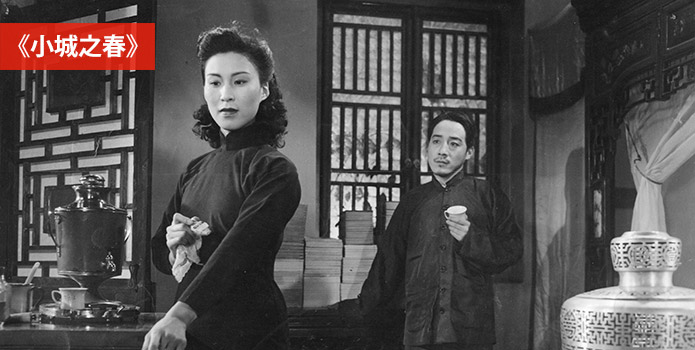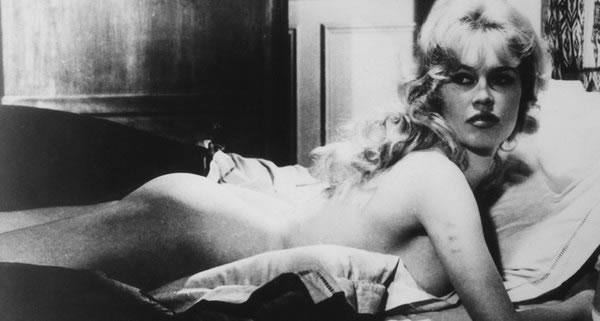- It may well be, as one Los Angeles cinephile said to me last week, “the year’s most important film series.” UCLA Film Archive’s “A Century of Chinese Cinema,” unlike the archive’s recent survey of contemporary Chinese cinema curated by former archive programmer Cheng-Sim Lim and REDCAT film series co-director Berenice Reynaud, takes a more historical perspective. Both are complimentary; taken together, they reinforce the fact that the archive has become one of the world’s most important presenters/curators of Chinese film. The 28-title series spans nine decades, as early as Zhang Sichuan’s 1922 short, “Laborer’s Love” (one of the few fragments to survive the silent era) to Wong Kar-wai’s 2000 “In the Mood for Love.” Although this is the archive’s abridged version of the larger series curated by Noah Cowan, artistic director of TIFF (the Toronto Film Festival’s producing organization), as well a TIFF Cinematheque, even an edited edition feels like a generous and wide-ranging survey. That’s because the selection has cherry-picked prime examples of Mainland filmmaking from all major genres (wuxia, melodrama, history, comedy) as well as key masterpieces, such as tonight’s opener (7:30 p.m.), Fei Mu’s seminal and oft-remade 1948 “Spring in a Small Town,” redone most brilliantly in 2002 by Tian Zhuangzhuang. This essential series runs through Dec. 13, and I’ll be revisiting it from time to time in this column.
- In a week with well over 20 new releases, one is a masterwork (Jia Zhangke’s “A Touch of Sin,” reviewed separately), while two others are worthy of special note.
- Matt Porterfield (“Putty Hill”) has become one of the country’s most interesting indie filmmakers, and his new feature, “I Used to Be Darker,” (released by Strand Releasing, at Sundance Sunset Cinemas) continues his exploration of characters in his Baltimore hometown with a deft combination of observational distance and intimate emotions.
- Last week here I wrote on the Los Angeles arrival of Rithy Panh’s poignant and unforgettable film memoir of life under the Khmer Rouge, “The Missing Picture.” Remarkably, another Cambodian documentary filmmaker, Kalyanee Mam, sees her first feature also arrive in Los Angeles at Laemmle’s Music Hall: “A River Changes Course.” For full disclosure, I should note that in a program surveying the fledgling independent Cambodian film movement that I co-curated with Panh in New York, Mam’s film was a key part of the program. With supreme artistry and a keen ability to capture the immediate moment, Mam follows three Cambodian families in different situations enduring irrevocable, brutal social change.
- As much or more than any North American city, Los Angeles has over twenty annual film festivals focused on national, ethnic and culturally specific realms. Two of the longest running of these specific kinds of festivals open this weekend: the Polish Film Festival Los Angeles (screening at Laemmle’s Royal and NoHo 7 theaters) and the Los Angeles Latino International Film Festival (at TCL’s Chinese 6 Theaters). The Polish festival’s survey of what’s new in that nation’s interesting cinema (non-fiction film is distinctly on the rise there) is firmly handled by fest director Vladek Juszkiewicz. LALIFF, under Marlene Dermer’s longtime direction, has notably shrunk in size and number of days this year, though the lineup contains a few important new works: “Polvo,” by Guatemala’s most important filmmaker, Julio Hernandez Colon; Ana Guevara’s and Leticia Jorge’s highly acclaimed festival hit, “Tanta Agua”; and the latest from major Argentine director Santiago Loza, “La Paz.”
- People who don’t know Los Angeles don’t know that radical cinema lives and thrives alongside the Hollywood octopus. So, in case you don’t know, here’s where: Filmforum LA (at the Spielberg Theater inside the Egyptian Theater complex on Hollywood Blvd.), the Echo Park Film Center (on Alvarado north of Sunset in Echo Park) and REDCAT (at the southwest corner of the Disney Hall complex downtown). But in an interesting departure from its general focus on new experimental work, REDCAT is hosting a panel discussion Saturday (6 p.m.) on “Henri-Georges Clouzot and the Aesthetics of the ‘60s,” alongside a rare screening of Clouzot’s 1960 “La verite,” starring Brigitte Bardot in one of her most sensational performances. Monday’s (8 p.m.) screening is back on contemporary turf, with “Let Your Light Shine,” an important overview of the handmade films of rising experimental animator Jodie Mack.
Robert Koehler, a film critic for Film Comment, Cinema Scope and Cineaste, blogs about movies on arts·meme.


